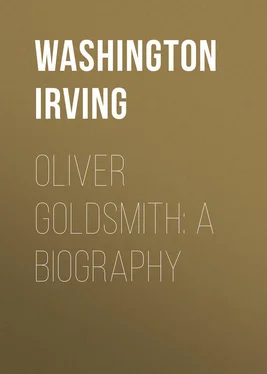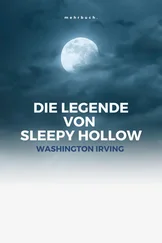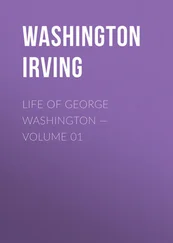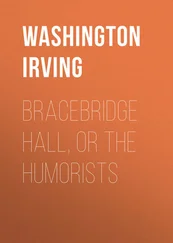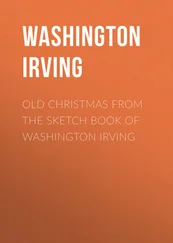Washington Irving - Oliver Goldsmith - A Biography
Здесь есть возможность читать онлайн «Washington Irving - Oliver Goldsmith - A Biography» — ознакомительный отрывок электронной книги совершенно бесплатно, а после прочтения отрывка купить полную версию. В некоторых случаях можно слушать аудио, скачать через торрент в формате fb2 и присутствует краткое содержание. Жанр: foreign_antique, foreign_prose, на английском языке. Описание произведения, (предисловие) а так же отзывы посетителей доступны на портале библиотеки ЛибКат.
- Название:Oliver Goldsmith: A Biography
- Автор:
- Жанр:
- Год:неизвестен
- ISBN:нет данных
- Рейтинг книги:4 / 5. Голосов: 1
-
Избранное:Добавить в избранное
- Отзывы:
-
Ваша оценка:
- 80
- 1
- 2
- 3
- 4
- 5
Oliver Goldsmith: A Biography: краткое содержание, описание и аннотация
Предлагаем к чтению аннотацию, описание, краткое содержание или предисловие (зависит от того, что написал сам автор книги «Oliver Goldsmith: A Biography»). Если вы не нашли необходимую информацию о книге — напишите в комментариях, мы постараемся отыскать её.
Oliver Goldsmith: A Biography — читать онлайн ознакомительный отрывок
Ниже представлен текст книги, разбитый по страницам. Система сохранения места последней прочитанной страницы, позволяет с удобством читать онлайн бесплатно книгу «Oliver Goldsmith: A Biography», без необходимости каждый раз заново искать на чём Вы остановились. Поставьте закладку, и сможете в любой момент перейти на страницу, на которой закончили чтение.
Интервал:
Закладка:
During a brief sojourn in Paris he appears to have gained access to valuable society, and to have had the honor and pleasure of making the acquaintance of Voltaire; of whom, in after years, he wrote a memoir. "As a companion," says he, "no man ever exceeded him when he pleased to lead the conversation; which, however, was not always the case. In company which he either disliked or despised, few could be more reserved than he; but when he was warmed in discourse, and got over a hesitating manner, which sometimes he was subject to, it was rapture to hear him. His meager visage seemed insensibly to gather beauty; every muscle in it had meaning, and his eye beamed with unusual brightness. The person who writes this memoir," continues he, "remembers to have seen him in a select company of wits of both sexes at Paris, when the subject happened to turn upon English taste and learning. Fontenelle (then nearly a hundred years old), who was of the party, and who being unacquainted with the language or authors of the country he undertook to condemn, with a spirit truly vulgar began to revile both. Diderot, who liked the English, and knew something of their literary pretensions, attempted to vindicate their poetry and learning, but with unequal abilities. The company quickly perceived that Fontenelle was superior in the dispute, and were surprised at the silence which Voltaire had preserved all the former part of the night, particularly as the conversation happened to turn upon one of his favorite topics. Fontenelle continued his triumph until about twelve o'clock, when Voltaire appeared at last roused from his reverie. His whole frame seemed animated. He began his defense with the utmost defiance mixed with spirit, and now and then let fall the finest strokes of raillery upon his antagonist; and his harangue lasted till three in the morning. I must confess that, whether from national partiality or from the elegant sensibility of his manner, I never was so charmed, nor did I ever remember so absolute a victory as he gained in this dispute."
Goldsmith's ramblings took him into Germany and Switzerland, from which last mentioned country he sent to his brother in Ireland the first brief sketch, afterward amplified into his poem of The Traveler.
At Geneva he became traveling tutor to a mongrel young gentleman, son of a London pawnbroker, who had been suddenly elevated into fortune and absurdity by the death of an uncle. The youth, before setting up for a gentleman, had been an attorney's apprentice, and was an arrant pettifogger in money matters. Never were two beings more illy assorted than he and Goldsmith. We may form an idea of the tutor and the pupil from the following extract from the narrative of the "Philosophic Vagabond."
"I was to be the young gentleman's governor, but with a proviso that he should always be permitted to govern himself. My pupil, in fact, understood the art of guiding in money concerns much better than I. He was heir to a fortune of about two hundred thousand pounds, left him by an uncle in the West Indies; and his guardians, to qualify him for the management of it, had bound him apprentice to an attorney. Thus avarice was his prevailing passion; all his questions on the road were how money might be saved – which was the least expensive course of travel – whether anything could be bought that would turn to account when disposed of again in London. Such curiosities on the way as could be seen for nothing he was ready enough to look at; but if the sight of them was to be paid for, he usually asserted that he had been told that they were not worth seeing. He never paid a bill that he would not observe how amazingly expensive traveling was; and all this though not yet twenty-one."
In this sketch Goldsmith undoubtedly shadows forth his annoyances as traveling tutor to this concrete young gentleman, compounded of the pawnbroker, the pettifogger, and the West Indian heir, with an overlaying of the city miser. They had continual difficulties on all points of expense until they reached Marseilles, where both were glad to separate.
Once more on foot, but freed from the irksome duties of "bear leader," and with some of his pay, as tutor, in his pocket, Goldsmith continued his half-vagrant peregrinations through part of France and Piedmont, and some of the Italian States. He had acquired, as has been shown, a habit of shifting along and living by expedients, and a new one presented itself in Italy. "My skill in music," says he, in the "Philosophic Vagabond," "could avail me nothing in a country where every peasant was a better musician than I; but by this time I had acquired another talent, which answered my purpose as well, and this was a skill in disputation. In all the foreign universities and convents there are, upon certain days, philosophical theses maintained against every adventitious disputant; for which, if the champion opposes with any dexterity, he can claim a gratuity in money, a dinner, and a bed for one night." Though a poor wandering scholar, his reception in these learned piles was as free from humiliation as in the cottages of the peasantry. "With the members of these establishments," said he, "I could converse on topics of literature, and then I always forgot the meanness of my circumstances ."
At Padua, where he remained some months, he is said to have taken his medical degree. It is probable he was brought to a pause in this city by the death of his uncle Contarine, who had hitherto assisted him in his wanderings by occasional, though, of course, slender remittances. Deprived of this source of supplies he wrote to his friends in Ireland, and especially to his brother-in-law Hodson, describing his destitute situation. His letters brought him neither money nor reply. It appears from subsequent correspondence that his brother-in-law actually exerted himself to raise a subscription for his assistance among his relatives, friends, and acquaintance, but without success. Their faith and hope in him were most probably at an end; as yet he had disappointed them at every point, he had given none of the anticipated proofs of talent, and they were too poor to support what they may have considered the wandering propensities of a heedless spendthrift.
Thus left to his own precarious resources, Goldsmith gave up all further wandering in Italy, without visiting the south, though Rome and Naples must have held out powerful attractions to one of his poetical cast. Once more resuming his pilgrim staff, he turned his face toward England, "walking along from city to city, examining mankind more nearly, and seeing both sides of the picture." In traversing France his flute – his magic flute – was once more in requisition, as we may conclude, by the following passage in his Traveler:
"Gay, sprightly land of mirth and social ease,
Pleased with thyself, whom all the world can please,
How often have I led thy sportive choir
With tuneless pipe beside the murmuring Loire!
Where shading elms along the margin grew,
And freshened from the wave the zephyr flew;
And haply though my harsh note falt'ring still,
But mocked all tune, and marr'd the dancer's skill;
Yet would the village praise my wondrous power,
And dance forgetful of the noontide hour.
Alike all ages: Dames of ancient days
Have led their children through the mirthful maze,
And the gay grandsire, skill'd in gestic lore,
Has frisk'd beneath the burden of threescore."
CHAPTER SIX
LANDING IN ENGLAND – SHIFTS OF A MAN WITHOUT MONEY – THE PESTLE AND MORTAR – THEATRICALS IN A BARN – LAUNCH UPON LONDON – A CITY NIGHT SCENE – STRUGGLES WITH PENURY – MISERIES OF A TUTOR – A DOCTOR IN THE SUBURB – POOR PRACTICE AND SECOND-HAND FINERY – A TRAGEDY IN EMBRYO – PROJECT OF THE WRITTEN MOUNTAINS
After two years spent in roving about the Continent, "pursuing novelty," as he said, "and losing content," Goldsmith landed at Dover early in 1756. He appears to have had no definite plan of action. The death of his uncle Contarine, and the neglect of his relatives and friends to reply to his letters, seem to have produced in him a temporary feeling of loneliness and destitution, and his only thought was to get to London and throw himself upon the world. But how was he to get there? His purse was empty. England was to him as completely a foreign land as any part of the Continent, and where on earth is a penniless stranger more destitute? His flute and his philosophy were no longer of any avail; the English boors cared nothing for music; there were no convents; and as to the learned and the clergy, not one of them would give a vagrant scholar a supper and night's lodging for the best thesis that ever was argued. "You may easily imagine," says he, in a subsequent letter to his brother-in-law, "what difficulties I had to encounter, left as I was without friends, recommendations, money, or impudence, and that in a country where being born an Irishman was sufficient to keep me unemployed. Many, in such circumstances, would have had recourse to the friar's cord or the suicide's halter. But, with all my follies, I had principle to resist the one, and resolution to combat the other."
Читать дальшеИнтервал:
Закладка:
Похожие книги на «Oliver Goldsmith: A Biography»
Представляем Вашему вниманию похожие книги на «Oliver Goldsmith: A Biography» списком для выбора. Мы отобрали схожую по названию и смыслу литературу в надежде предоставить читателям больше вариантов отыскать новые, интересные, ещё непрочитанные произведения.
Обсуждение, отзывы о книге «Oliver Goldsmith: A Biography» и просто собственные мнения читателей. Оставьте ваши комментарии, напишите, что Вы думаете о произведении, его смысле или главных героях. Укажите что конкретно понравилось, а что нет, и почему Вы так считаете.
